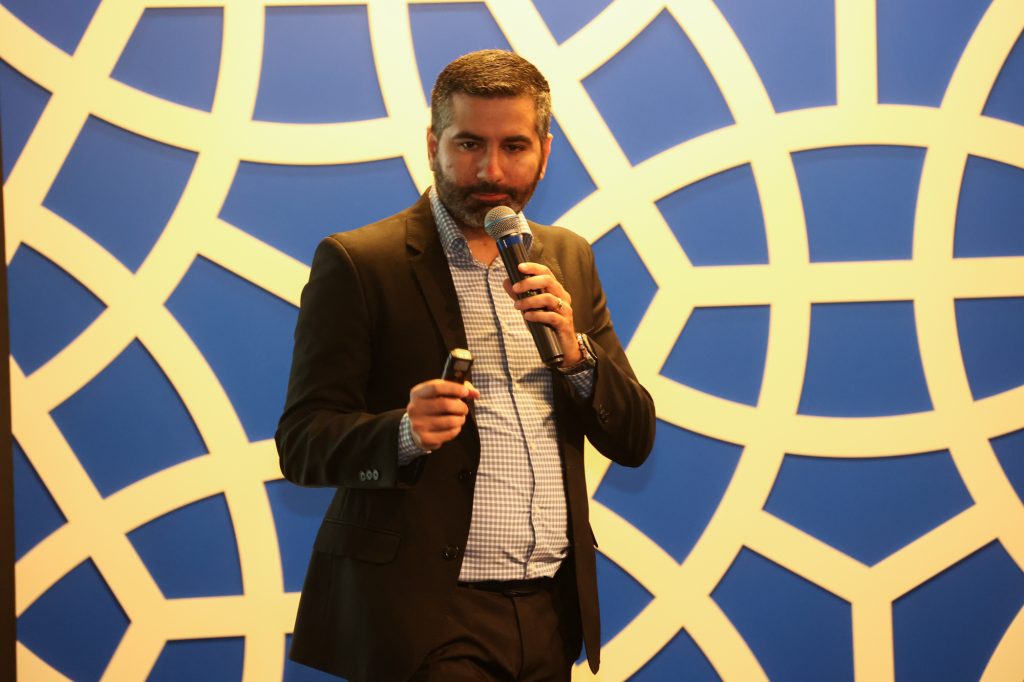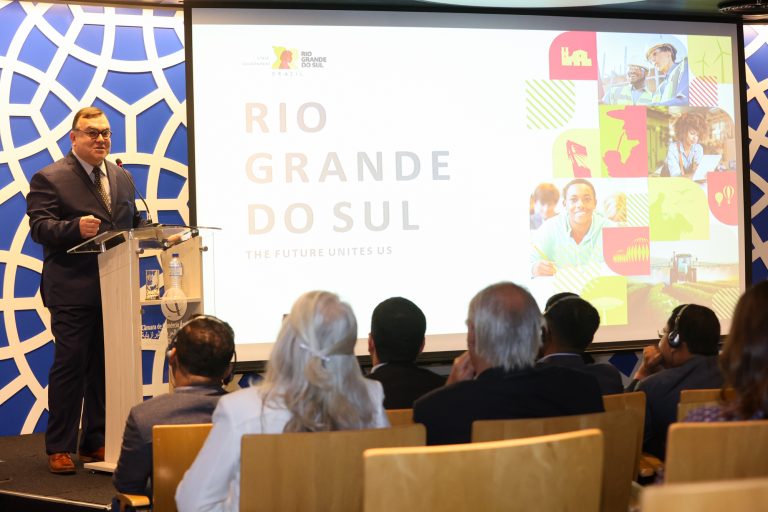São Paulo – Minas Gerais, Goiás, Paraná, and Rio Grande do Sul are major halal meat producers and exporters but aim to expand sales to Muslim countries. On Tuesday (6) and Wednesday (7), representatives from these states and their industry associations presented their attractive features at lectures for businesspeople participating in the Buyer Project held by the Halal do Brasil project in the Arab-Brazilian Chamber of Commerce (ABCC) in São Paulo.
Patrícia Arantes, advisor of the Food and Beverage Industry Chamber at the Goiás State Industries Federation (Fieg), said some of the leading destinations of Goiás’ agricultural production are Arab nations. She mentioned that 15.1% of the halal poultry produced there goes to the United Arab Emirates, and 11.2% to Saudi Arabia. Morocco is the destination of 12.3% of sugar exports, and Saudia Arabia of 6.4% of beef.
“The diversification of our markets is large, but we’d like it to grow more and more to your markets,” said Arantes at an online presentation for the Muslim buyers.
They are part of a group of eight companies from Jordan, Lebanon, Malaysia, Oman, Qatar, Tunisia, and the UAE that were invited by the Halal do Brasil project to visit the Latin American country this week, participate in seminars, and have three days of B2B meetings with Brazilian companies, The Halal do Brasil project is spearheaded by the ABCC and the Brazilian Trade and Investment Promotion Agency (ApexBrasil) to promote made-in-Brazil halal foods and beverages in Muslim-majority countries.

From Thursday (8) to Saturday (10), foreign visitors will be divided into groups that will go to Minas Gerais, Paraná, and Goiás, where they’ll learn more about the economic potential of each state. On Saturday, they end the visit by meeting in Foz do Iguaçu, Paraná.
Higor de Menezes, international relations manager at the Paraná State Industries Federation (Fiep), said that, although Paraná-based companies have a trade relationship with the Muslim world, the export performance is still shy. “There’re many opportunities to expand,” he said, showcasing the state as a major wood and plywood and meat manufacturer.
Muslim-majority countries have demand for industrialized goods
Laís Fagundes, export promotion director at the Minas Gerais State Secretariat for Economic Development, said exports from her state are mostly concentrated in two destinations, China and the United States, which account for nearly 50% of everything Minas Gerais exports. “We want to diversify, and the Arab countries are some of those we want to get a closer relationship with,” she said. She added the secretariat plans on taking a trade delegation to the UAE and Saudi Arabia in 2025.
Evaldo da Silva Jr., trade promotion and foreign affairs director at the Rio Grande do Sul State Secretariat for Economic Development, also presented the distinguishing features of his states, which in May was hit by floods that destroyed part of its infrastructure and will need several rebuilding projects. Despite these challenges, he said, Rio Grande do Sul-based companies want and are in conditions to export.
“A [successful] case are halal meats – there are several [halal-]certified meatpackers. Now there is this work the ABCC has developed to promote other products to Muslim-majority countries. We must continue to showcase this great work,” Silva told ANBA on the Buyer Project. A challenge for exports to Arab countries are the lack of a direct sea shipping route between Brazil and the Arab countries. “There has to be more exports, more business. If we manage to diversify exports, it becomes more appealing for shipping routes to create a direct connection,” he said.
ABCC market intelligence manager Marcus Vinicius presented data on exports from Brazil to the 57 Muslim-majority countries. Holding the world’s largest halal meat production, Brazil has 38,000 food and beverage companies, and some of the industry’s leading export destinations are Algeria, Saudi Arabia, and UAE. “There are many opportunities for industrialized foodstuff,” he said, mentioning examples like juices, and industrialized organic foodstuff.
Read more:
Malaysia: 1.9 billion halal consumers
Translated by Guilherme Miranda




